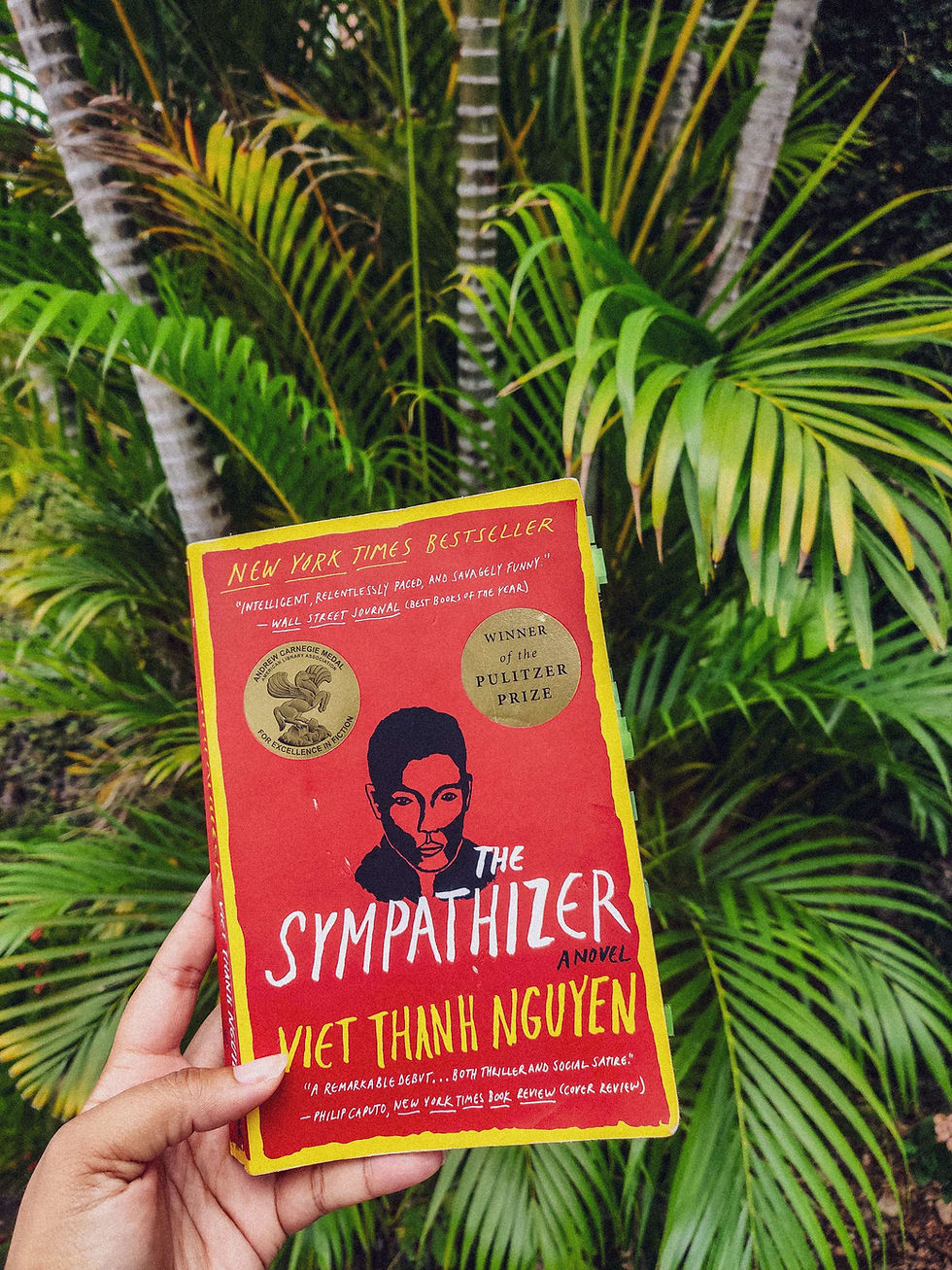
“Nothing is ever so expensive as what is offered for free.”
This story unfolds during the tumultuous Vietnam war era. We follow the life of our nameless narrator, a half-French, half Vietnamese communist spy.
We are taken through various settings, including the chaotic evacuation of Saigon, a refugee camp in the Philippines, and the Vietnamese immigrant community in the United States. We see how the narrator's experiences shed light on the post-war trauma and the struggles faced by those caught in the aftermath of conflict.
This book is such an excellent portrayal of identity, politics, cultural displacement, war, and the blurred lines between loyalty and betrayal. I loved the way the author decided to tell this story-through a confession-style narrative, which provided a unique perspective on the war.
One of my favourite things about this novel was the writing, and I was pleasantly surprised at how extremely quotable this book is. I will be leaving some of my favourite quotes at the end of this review, although it will be really hard to pick only a handful of quotes to include.
The novel is presented in the form of a confession, as the unnamed narrator recounts his experiences and emotions to an interrogator. This confessional tone lends a sense of intimacy to the narrative, which immersed me in the narrator's thoughts, doubts, and conflicts.
The author explores the themes of duality and identity in an intricate and important way. We see how the narrator, being a half-Vietnamese and half-French communist spy, is perpetually caught between two worlds. As we follow his journey, the theme of duality becomes a powerful lens through which to view the broader socio-political landscape during this time period. His internal conflict reflects not only his, but the broader struggles faced by the Vietnamese people during the war- a nation divided by ideology, allegiance, and the brutal realities of combat.
The theme of loyalty and betrayal is also explored in a profound way. As alliances shift and betrayals unfold, the author underscores the human cost of political maneuvering and the personal sacrifices made in service of a cause. This theme made me question the lengths to which individuals will go to protect their beliefs or survive in the midst of chaos.
The author also importantly delves deeply into the concept of cultural displacement. From the agonizing evacuation of Saigon to the struggles of refugees in a foreign land, the novel paints a vivid picture of the emotional and psychological toll experienced by those uprooted from their homes. This resonates not only with the characters but also serves as a poignant reflection of the broader refugee experience, adding a layer of universality to the narrative.
Despite the exciting storyline, this was not an easy read for me, as the author does not shy away from describing some pretty heavy topics which can be hard to digest.
Overall, I found this to be a remarkable, phenomenal novel that masterfully highlights the Vietnam war and its aftermath, which allowed me to have a deeper understanding of this time in history. I would highly recommend this novel.
I read this as part of my Read Around the World Challenge for Vietnam.
SOME OF MY FAVOURITE QUOTES FROM THE SYMPATHIZER
“Love is being able to talk to someone else without effort, without hiding, and at the same time to feel absolutely comfortable not saying a word. At least that's one way I've figured out hot to describe love.”
“If youth was not wasted, how could it be youth?”
“While it is better to be loved than hated, it is also far better to be hated than ignored.”
“We don’t succeed or fail because of fortune or luck. We succeed because we understand the way the world works and what we have to do. We fail because others understand this better than we do.”
“Your problem isn’t that you think too much; your problem is letting everyone know what you’re thinking.”
“Remember, you're not half of anything, you're twice of everything.”
“She cursed me at such length and with such inventiveness I had to check both my watch and my dictionary.”
“So it was that we soaped ourselves in sadness and we rinsed ourselves with hope, and for all that we believed almost every rumor we heard, almost all of us refused to believe that our nation was dead.”
“The unseen is almost always underlined with the unsaid.”
“no one asks poor people if they want war.”
“We would all be in Hell if convicted of our thoughts.”
“If something is worth dying for, then you’ve got a reason to live.”
“Disarming an idealist was easy. One only needed to ask why the idealist was not on the front line of the particular battle he had chosen.”
“We must be vigilant, even of each other, but mostly of ourselves. What my time in the cave taught me is that the ultimate life-and-death struggle is with ourselves. Foreign invaders might kill my body, but only I could kill my spirit.”
Comments